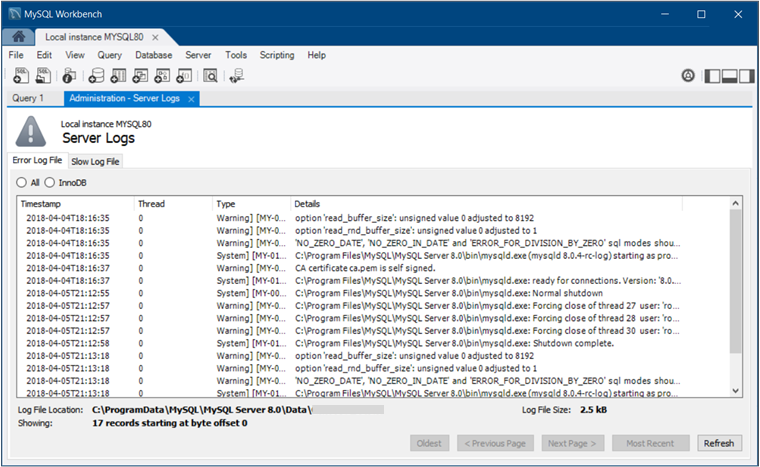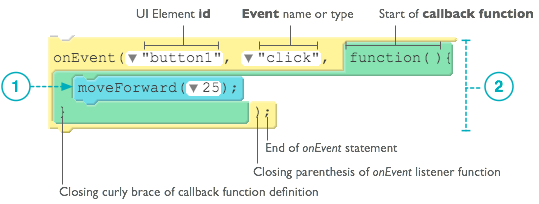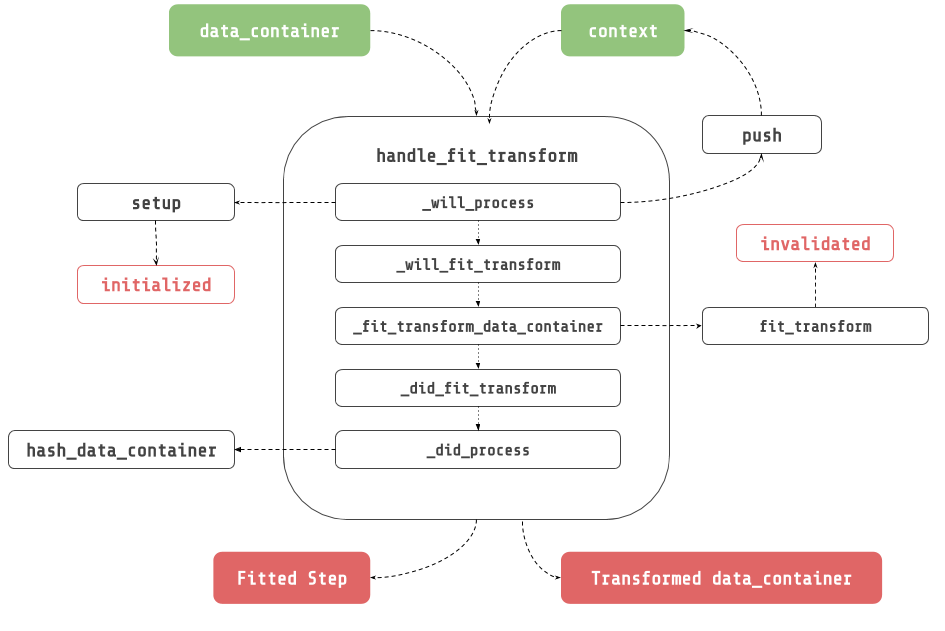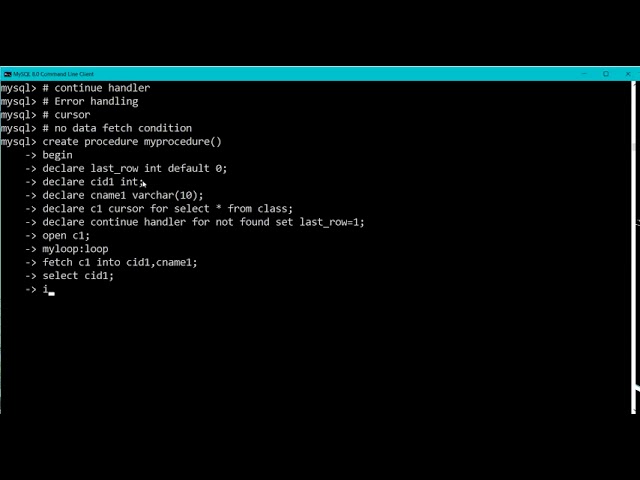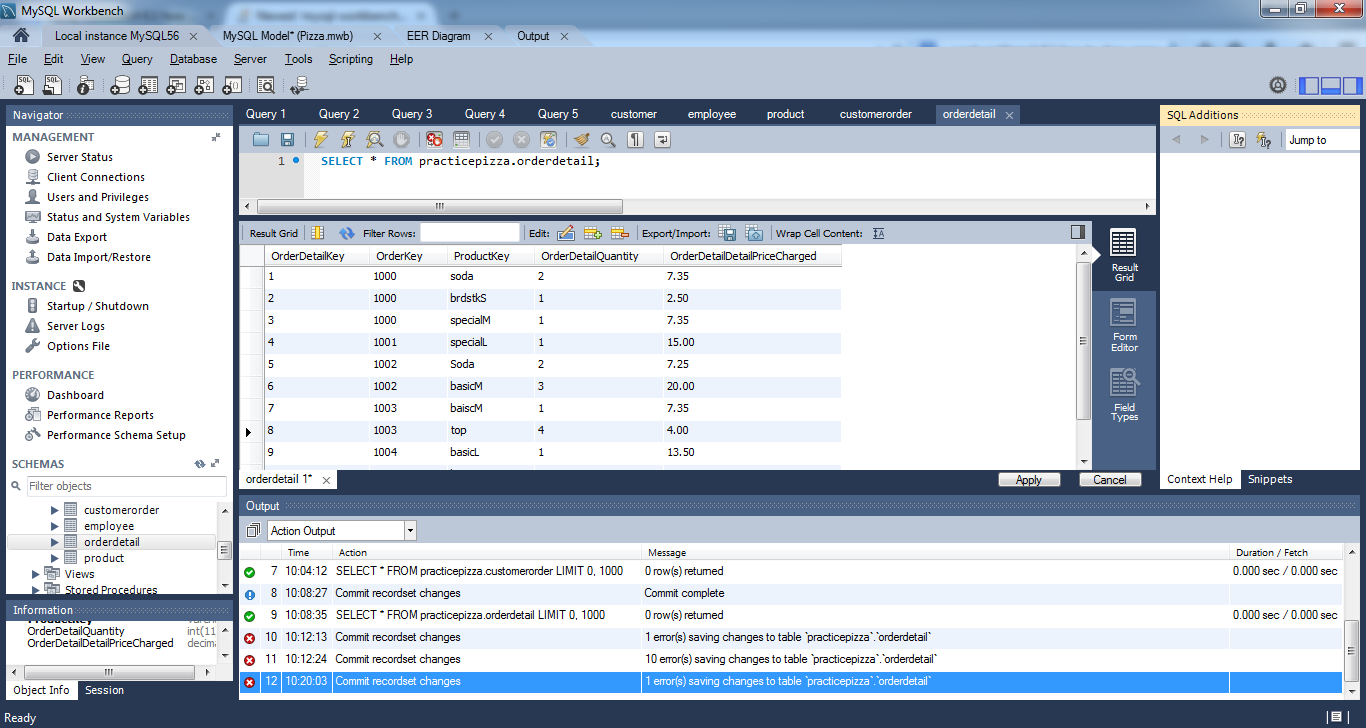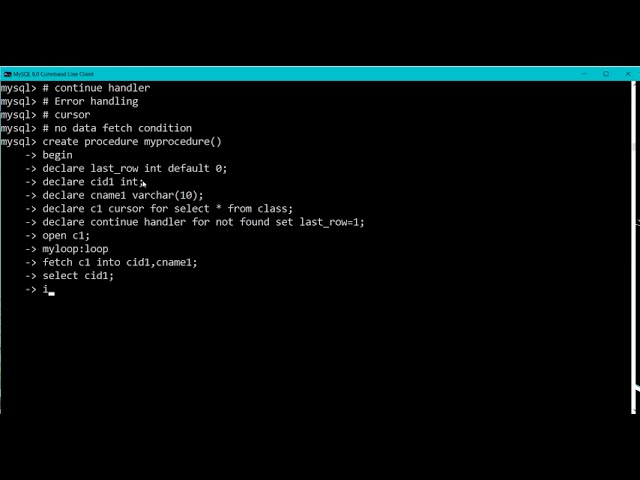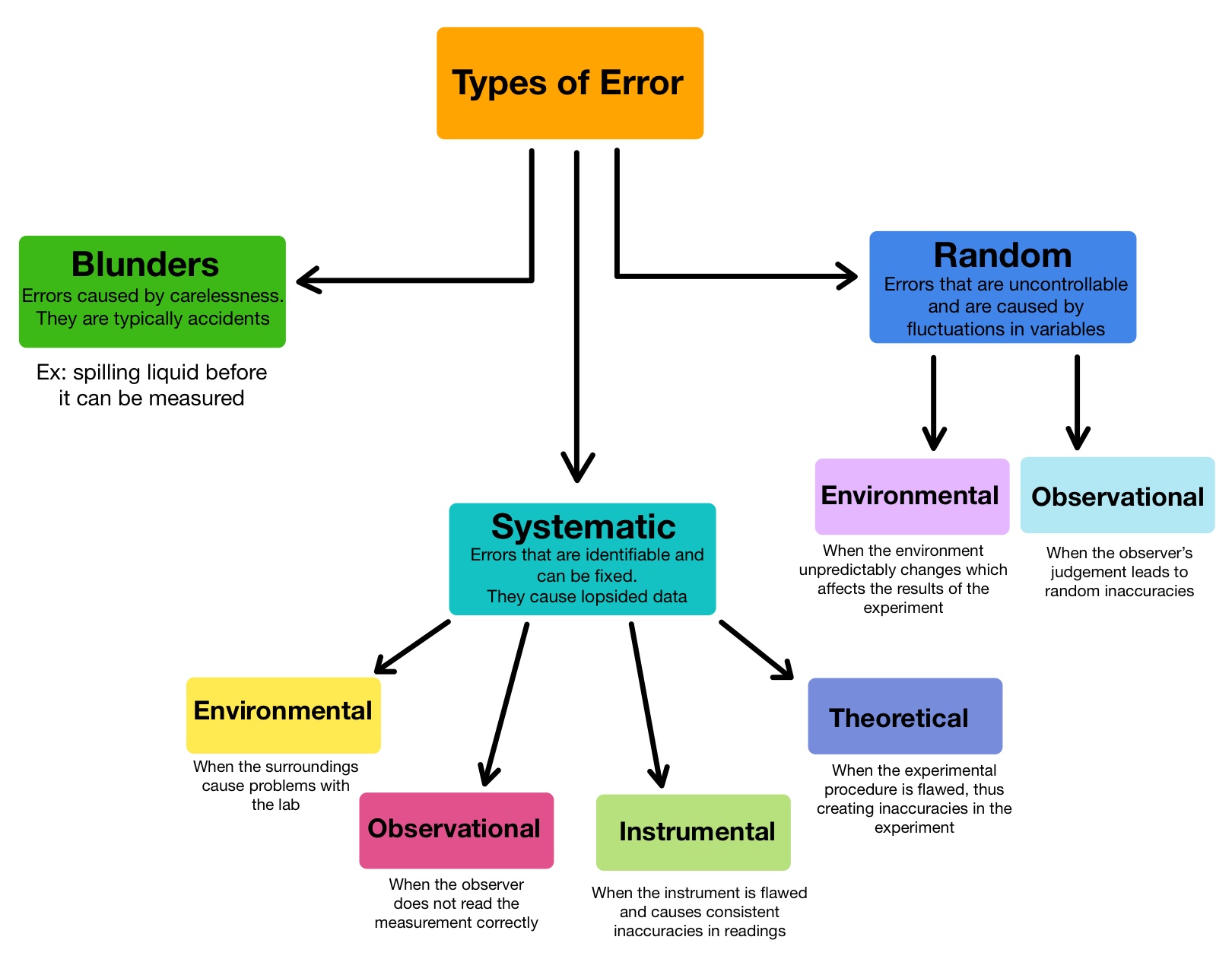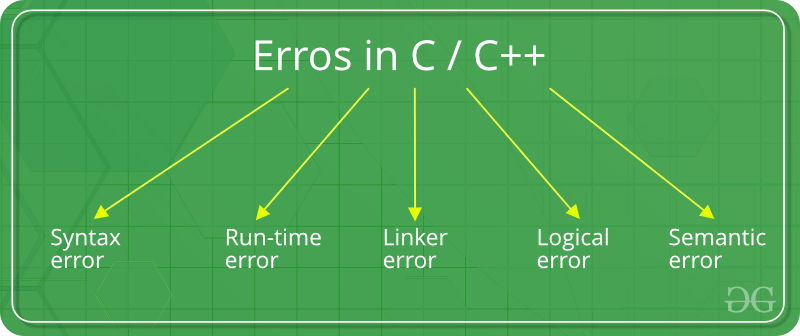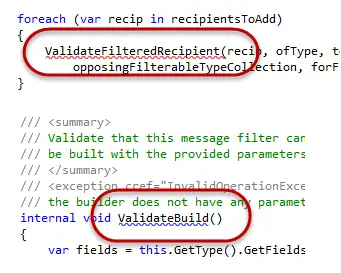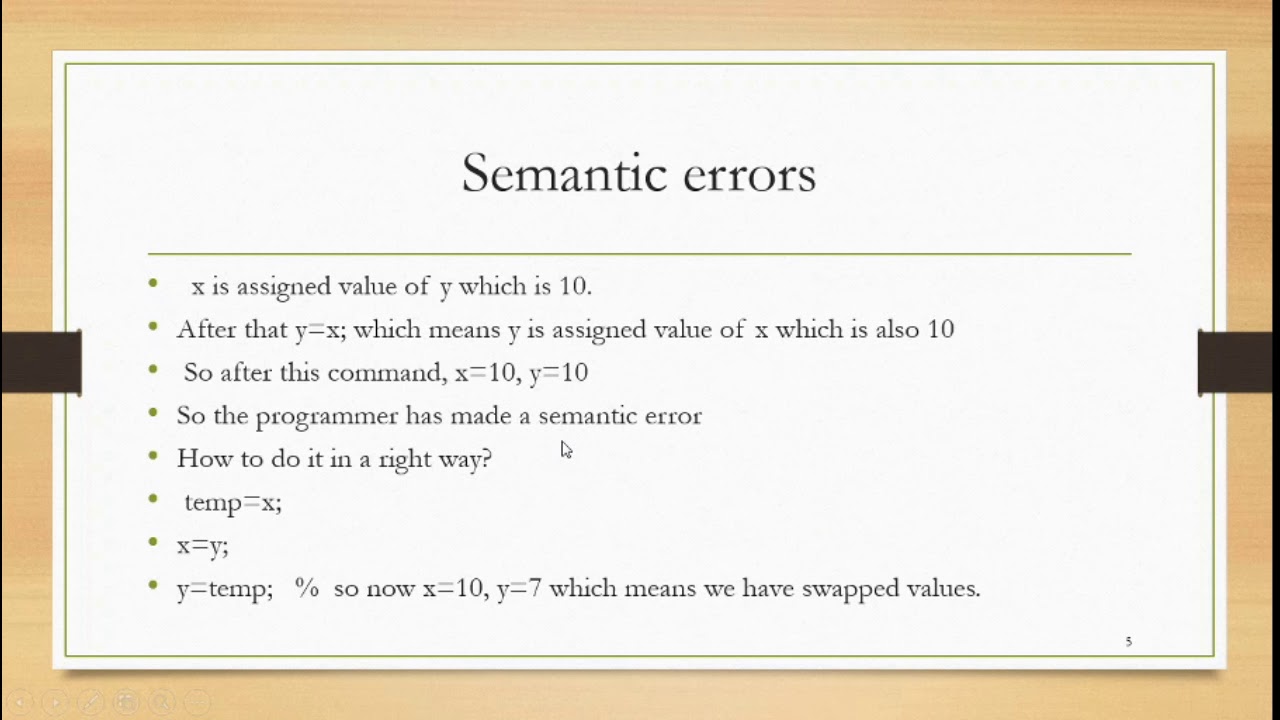How do I view MySQL log files?
The default location for each of the logs is the MySQL Data directory (C:\ProgramData\MySQL\MySQL Server [version number]\Data\), and the default log names are based on the computer’s device name. Does MySQL have a log file? MySQL Server has several logs that can help you find out what activity is taking place. By default, no logs are enabled, except the error …

